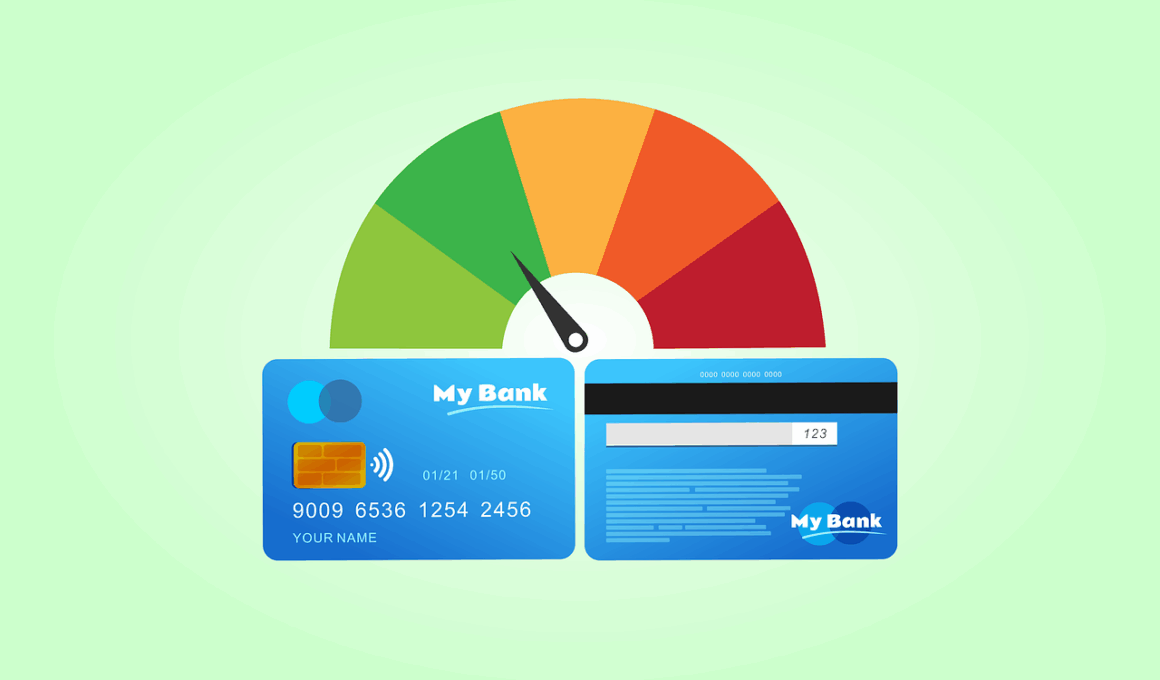Why Regular Credit Monitoring Matters for Protecting Scores
Having a good credit score is essential for various financial aspects of life. A higher score can lead to better loan terms and lower interest rates, making it easier to purchase a home or finance a car. However, maintaining that score can be challenging without regular monitoring. One of the best practices is to check your credit report regularly. Doing so can help identify negative factors that might be affecting your score. Regular monitoring allows you to catch any inaccuracies or fraudulent attempts before they cause significant damage. By understanding what influences your score, you can take proactive steps to maintain it. Factors such as payment history, credit utilization, and length of credit history play crucial roles. Keeping tabs on these components of your credit report provides insights into how your score may shift over time. If any negative information appears, addressing it swiftly is essential. The more informed you are about your credit status, the better decisions you can make regarding loans and credit. Proper monitoring serves as a safeguard against unexpected surprises in your financial journey.
Furthermore, understanding the implications of credit inquiries is vital in this process. When lenders perform hard inquiries, it can slightly lower your score temporarily. If you are seeking multiple loans, this can add up and negatively affect your creditworthiness. Thus, being strategic about your applications is essential. Regularly monitoring your credit can help manage these inquiries effectively. You can track how often your credit is being checked and take necessary actions to minimize the negative impacts. Knowing when hard inquiries occur allows you to plan your applications better. Soft inquiries, however, do not affect your score. These inquiries are typically made by credit card companies to pre-qualify you. By routinely checking your credit report, you can differentiate between soft and hard inquiries. Awareness of these factors can significantly help in improving and safeguarding your credit score. By understanding inquiries, you can navigate the landscape of loans more effectively. The goal is to ensure your credit remains as robust as possible for future opportunities.
Besides that, monitoring your credit reports also encompasses understanding the significance of credit utilization. This factor represents how much credit you are using compared to your total credit limits. Keeping your credit utilization ratio low is essential for maintaining a healthy credit score. Ideally, staying below 30% of your total credit limit is advisable. This range demonstrates responsible credit use and can positively influence your score. However, monitoring can help identify trends in your spending habits. If your ratio rises too high, it may indicate that you’re relying too much on credit. It can be beneficial to assess your habits regularly and adjust as needed. For instance, if you find yourself frequently approaching your limits, consider strategies to curb your spending or pay off balances more frequently. By closely monitoring these factors, you can make informed decisions to enhance your credit profile significantly. Also, ensure that your account balances are up to date on your credit reports to accurately reflect your utilization rates.
Identifying Fraudulent Activity
Another important aspect of regular credit monitoring is the ability to identify and address fraudulent activity. In today’s digital world, identity theft is a growing concern, and fraudulent accounts can severely damage your credit. Regularly checking your credit report helps you become aware of any unfamiliar accounts that may have been opened in your name. If you notice any suspicious activity, it’s crucial to act quickly. Disputing the erroneous entries with credit bureaus can help mitigate the impact on your credit score. Prompt reporting can also protect your credit profile from further harm. Additionally, being aware of the signs of identity theft can empower you to take action before the situation escalates. Credit monitoring services often alert you to changes in your credit report, making it easier to stay informed. Such proactive measures can save you time and stress in the long run. Effective credit monitoring should be part of an overall strategy for financial health and security.
Moreover, maintaining good credit is not just about avoiding negatives; it also involves building positive credit history. This requires you to have a mix of credit types, which can contribute to a better score. Monitoring helps analyze different types of accounts, including credit cards, installment loans, and mortgages. Understanding how each type of credit influences your overall credit profile can guide your future decisions. If you notice gaps in your credit mix, consider exploring options to diversify your accounts responsibly. For instance, applying for a small personal loan might help enhance your credit mix while also showing your reliability in making payments. Additionally, maintaining long-standing accounts can positively impact your score over time; therefore, keeping older accounts open and active is advisable. It is also prudent to assess how new accounts can affect your average credit age, as this is another crucial factor in scoring models.
The Benefits of Long-Term Monitoring
Regular credit monitoring instills disciplined financial habits over time. As you become accustomed to checking your credit regularly, you develop a greater awareness of your overall financial health. This consistency fosters a responsible approach toward debt and spending. Individuals can refine their strategies to optimize their scores by tapping into various tracking tools and platforms. Furthermore, using credit monitoring can empower you to make more informed choices. Whether applying for new credit or negotiating terms with lenders, having a solid grasp of your credit standing can provide leverage. Additionally, many monitoring services offer additional resources, such as credit score simulators. These tools can help predict how certain actions—like paying down debt—might impact your score. This empowers you to make both informed and strategic financial decisions moving forward. Understanding the effects of your actions allows you to cultivate healthy credit practices that promote long-term financial well-being.
Lastly, while monitoring your credit is crucial, it is equally important to ensure financial literacy. Understanding credit scores and the multitude of factors affecting them is essential. This literacy can prevent poor credit habits from forming. One of the benefits of employing credit monitoring services is learning about this information in-depth. Such services often provide educational resources that can enhance your understanding. By grasping concepts like payment timelines, credit history impacts, and dispute processes, you set yourself up for long-term success. This knowledge empowers you to navigate the financial landscape confidently. Consider utilizing resources such as blogs, seminars, or online courses to further your financial education. Tools such as these can complement your monitoring efforts. Together, they can help you establish a stronger financial foundation. Consequently, informed consumers tend to make better decisions regarding card usage, debt management, and loan applications. Emphasis on education coupled with monitoring ensures a well-rounded approach to building and maintaining a healthy credit score.
In conclusion, the importance of regular credit monitoring cannot be overstated. It serves as a critical component in protecting and enhancing your credit score. From recognizing fraud to understanding how different factors affect your scores, staying informed is vital. With many services available today, the task has become more accessible than ever. While ensuring awareness, consumers can remain proactive with their credit management. This can lead not only to higher scores but also to better opportunities in leveraging credit for significant purchases and investments. Therefore, make it a habit to routinely check your credit report and score. Set alerts for changes and educate yourself along the way. Such diligence will ultimately preserve not only your credit standing but also your financial future. Remember, a healthy credit score is an asset that takes time and effort to build but is invaluable in the long run. Start monitoring today to reap the rewards of a well-managed credit profile.





